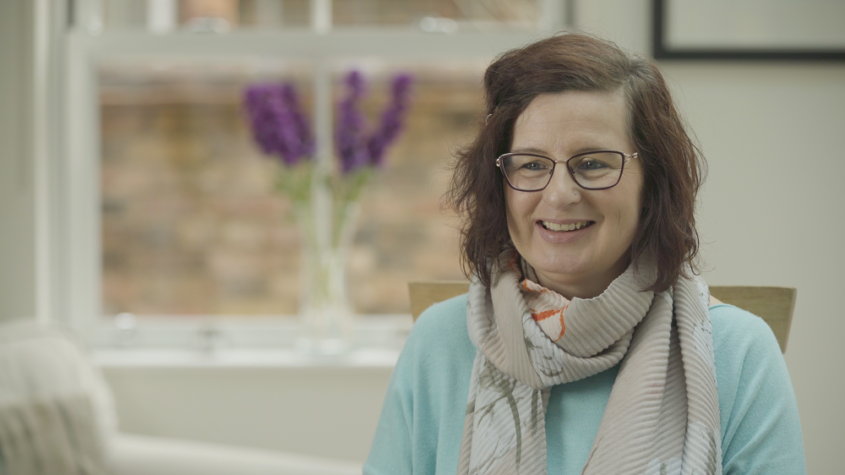Questions about chemotherapy?
If you have questions about what chemotherapy you will have, speak to your doctor or nurse.
You can also speak to our specialist nurses on our free Support Line.
You may be offered chemotherapy after surgery to remove the cancer (such as the Whipple’s procedure). This is to try to reduce the chances of the cancer coming back. You may hear this called adjuvant chemotherapy.
There are three types of chemotherapy that may be used:
The type of chemotherapy you have will depend on how well you are. Speak to your chemotherapy team about what chemotherapy will be best for you.
You should be given time to recover properly from your surgery before starting chemotherapy, as you need to be well enough for six months of chemotherapy. Your chemotherapy should begin in the first 12 weeks after your surgery.
Pancreatic cancer and surgery to remove it can cause problems with digestion, including weight loss, losing your appetite, and changes to your poo. If you have any problems after surgery, speak to your doctor, nurse or dietitian to make sure these don’t delay the chemotherapy. A dietitian is an expert in diet and nutrition.
Borderline resectable cancer is cancer that has grown very close to large blood vessels near the pancreas. Surgery to remove the cancer may be possible. But this depends which blood vessels are affected and how far the cancer has grown.
You may be offered chemotherapy. You may hear this called neoadjuvant chemotherapy. Some people may then be offered chemotherapy together with radiotherapy. The aim is to shrink the cancer away from major blood vessels so that there’s a better chance of removing it.
You will have scans before, during and at the end of your treatment to see how the chemotherapy is working.
Chemotherapy used together with radiotherapy is called chemoradiotherapy. Radiotherapy uses radiation to damage cancer cells and stop the cancer growing. The chemotherapy may make the cancer cells more sensitive to radiotherapy so that it works better.
Some people with borderline resectable cancer and locally advanced cancer may be offered chemoradiotherapy.
If you have chemoradiotherapy, you will normally have chemotherapy on its own for around three to six months to begin with. You will then have a CT scan. If this shows that the cancer hasn’t grown or spread, you will start chemoradiotherapy.
The chemotherapy drug most often used with radiotherapy is capecitabine, which is a tablet. You will have radiotherapy and capecitabine five days a week, for five to six weeks.
If it’s not possible to remove the cancer with surgery (inoperable cancer), you may be offered chemotherapy to help control the growth and spread of the cancer. This is called palliative chemotherapy. This means it can help with symptoms of the cancer but will not cure it.
Locally advanced pancreatic cancer is cancer that has spread to the large blood vessels near the pancreas, or to a number of lymph nodes. It’s not usually possible to remove the cancer with surgery.
You may be offered chemotherapy, and sometimes chemoradiotherapy. This may shrink the cancer and slow down its growth. It can also help with any symptoms and help you feel better. For a small number of people, this treatment may shrink the cancer enough to make surgery possible.
You may be offered FOLFIRINOX or gemcitabine with capecitabine (GemCap). If you are not well enough to deal with the possible side effects of these treatments, your oncologist may consider gemcitabine on its own.
You will have scans before, during and at the end of your treatment to see how the chemotherapy is working.
Advanced (metastatic) pancreatic cancer is cancer that has spread from the pancreas to other parts of the body. Surgery to remove the cancer won’t be possible.
Chemotherapy may help to control the cancer and help with symptoms. It won’t cure the cancer but it may help you live longer and generally feel better.
You will need to be well enough for chemotherapy. You will have a scan every three months to see how well the chemotherapy is working and how it’s affecting you.
Speak to your chemotherapy team about which treatment may be best for you.
You might be able to have chemotherapy as part of a clinical trial. Ask your oncologist if there are any trials that might be suitable for you.
The first chemotherapy treatment you have is called first-line chemotherapy. If you need more chemotherapy, you may be given different drugs. This is called second-line chemotherapy. The aim is to control the cancer and any symptoms.
There are different second-line options which may be used.
Speak to your oncologist about which treatment may be best for you.
Clinical trials are research studies involving people. They help doctors find new treatments or better ways of providing treatment. This includes trials looking at chemotherapy.
If you have questions about what chemotherapy you will have, speak to your doctor or nurse.
You can also speak to our specialist nurses on our free Support Line.


Updated May 2024
Review date October 2026